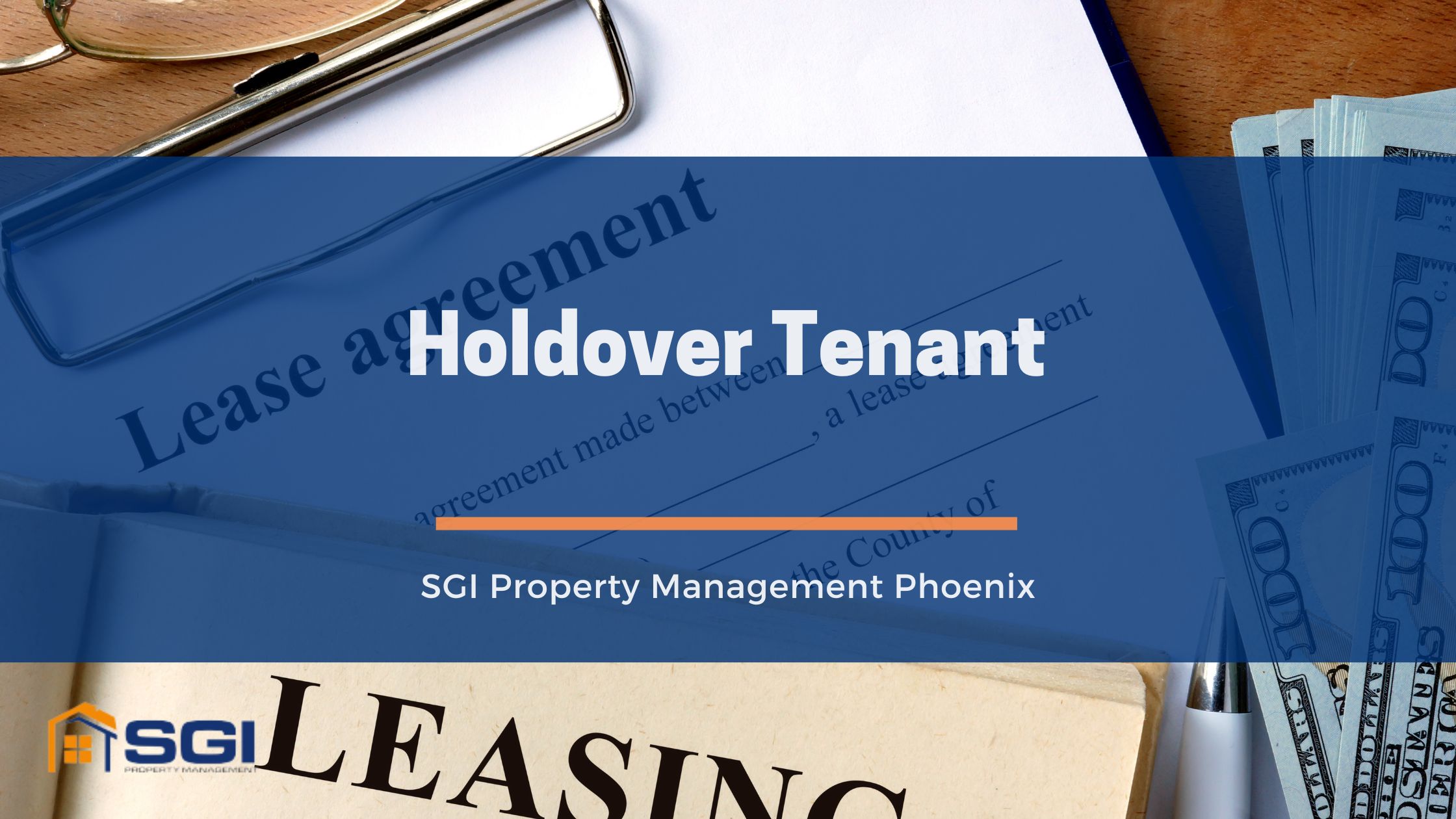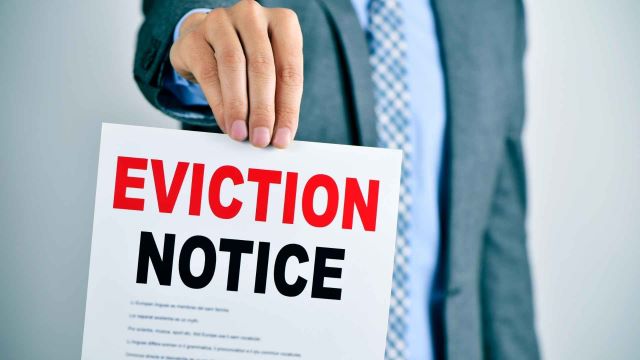
As a landlord, dealing with holdover tenants can be a frustrating and complex issue to navigate. In this blog, we'll explore the challenges holdover tenants present from a landlord's perspective and provide tips on handling this situation effectively.
Understanding Holdover Tenancy
Holdover tenancy is when a tenant continues to occupy a rental property after the expiration of their lease without the landlord's permission.
This can occur for various reasons, such as the tenant's failure to vacate the property or the landlord's failure to provide a notice of termination of the tenancy.
Holdover tenancy can create legal complications for landlords and tenants, as it may lead to disputes over rent, eviction, and damages to the property.
Types of Holdover Tenancy
There are three types of holdover tenancies, distinguished by the tenant's legal status and relationship with the landlord. The types are:
Tenant at Sufferance
A tenant at sufferance is a holdover tenant who continues to occupy the property after the expiration of their lease without the landlord's permission.
This type of holdover tenancy arises when the tenant remains in the property without any legal right to do so and the landlord has not initiated eviction proceedings.
In this situation, the tenant is considered a trespasser and has no legal rights to the property. However, the landlord must still follow legal procedures to evict the tenant, which may include obtaining a court order.
Tenant at Will
A tenant at will is a holdover tenant who remains in the property with the landlord's consent but without a formal lease or rental agreement.

This type of holdover tenancy is often created when the tenant's lease has expired, but the landlord allows them to stay month-to-month.
A tenant at will may be subject to the terms of the original lease or may have an informal arrangement with the landlord. However, the landlord may terminate the tenancy by providing proper notice.
Tenant at Sufferance
A tenant at sufferance is a holdover tenant who remains in the property after the expiration of their lease, with the landlord's permission.
This type of holdover tenancy is created when the landlord allows the tenant to stay temporarily, usually to allow them to find new housing or to complete repairs to their new property.
A tenant at sufferance may be required to pay rent and may be subject to the terms of the original lease. However, the landlord may terminate the tenancy by providing proper notice.
Impacts of Holdover Tenancy on Landlords
When a tenant remains in a rental property without the landlord's permission or after the lease has expired, the landlord loses control over the property. This can make preparing the property for a new tenant difficult, as the holdover tenant may not allow access to the property for renovations or cleaning.
Additionally, the landlord may not be able to show the property to prospective tenants while the holdover tenant is still occupying it.
One of the most significant impacts of holdover tenancy on landlords is the loss of rental income. When a tenant remains in a property without paying rent, the landlord is not receiving the income that they would otherwise expect.

This can be particularly problematic if the landlord relies on the rental income to pay for mortgage payments or other expenses.
Dealing with holdover tenancy can also increase landlords' legal and administrative costs. To remove a holdover tenant from the property, the landlord may need to initiate eviction proceedings, which can be time-consuming and costly. Additionally, the landlord may need legal representation, which can further increase costs.
When a holdover tenant remains in a rental property, there’s a higher risk of tenant damage. This can be an issue if the tenant is not taking care of the property or is using it in a way that violates the lease agreement. In some cases, holdover tenants may cause intentional damage to the unit, which can make property maintenance costly.
Legal Implications of Holdover Tenancy
Holdover tenancy can have significant legal implications for both landlords and tenants. Some of the key legal considerations include the following:
Eviction: If a tenant remains in a rental property without the landlord's permission, the landlord may need to initiate eviction proceedings to regain possession of the property.
Rent Increase: In some cases, a landlord may increase the rent to encourage the tenant to vacate the property.
Negotiation of New Lease: In other cases, the landlord may be willing to negotiate a new lease or rental agreement with the holdover tenant to avoid the need for eviction or other legal action.
Here are some potential consequences for each option:
Cost and Time Associated With Eviction: Eviction can be time-consuming and costly, which may involve hiring legal representation and attending court hearings.

Risk of Losing the Tenant: If a landlord chooses to increase the rent or initiate eviction proceedings, there’s a risk that the holdover tenant may decide to vacate the property entirely, which could result in a loss of rental income.
Need for Lease Renegotiation: If a landlord chooses to negotiate a new lease with a holdover tenant, they may need to renegotiate the lease terms, which can be time-consuming and involve legal fees.
Preventing Holdover Tenancy
Timely Communication With Tenants
Landlords should provide written notices to tenants before their lease expires, informing them of the end of their lease and any necessary steps for lease renewal or move-out. This gives tenants time to make arrangements and prevents accidental holdover tenancy.
Landlords should communicate with tenants about lease renewal options before expiration. This helps tenants understand their options and prevents them from assuming they can stay without renewing the lease.
Reviewing Lease Terms
Lease agreements should clearly outline lease termination provisions, including the expiration date and notice requirements. This helps prevent misunderstandings and holdover tenancy.
Landlords should set clear expectations for tenant communication, including how to give notice of move-out and what will occur if a tenant fails to do so.
Dealing with Holdover Tenancy
One of the first steps a landlord should take when dealing with a holdover tenant is providing a notice of default to them. This notice should inform the tenant that they’re violating the lease agreement and occupying the property without permission.

The notice should also specify a deadline by which the tenant must vacate the property or face eviction proceedings. The notice should be delivered in a manner consistent with state and local laws.
If the holdover tenant fails to vacate the property by the deadline specified in the notice of default, the landlord may consider negotiating new lease terms with the tenant.
In some cases, landlords may be willing to negotiate a new lease agreement with updated terms, such as a new rental rate, lease length, or other conditions.
If the landlord and tenant agree to new lease terms, the tenant should sign the new lease agreement and begin paying rent according to the new terms.
However, if negotiation fails, eviction may become necessary. The legal requirements and process for eviction vary by state and local laws.
In general, the landlord must file a complaint with the court, serve the tenant with a copy of the complaint, and attend a hearing to obtain a judgment of possession.
Conclusion
Holdover tenants can present challenges for landlords. To handle holdover tenants, landlords and property management companies should have clear lease agreements, provide notice to tenants before lease expirations, and pursue legal action if necessary.
At SGI Property Management Phoenix, we understand the challenges of managing holdover tenants and offer comprehensive property management services to handle all aspects of rental management.
Contact us today to learn more about our services and how we can help manage your rental property!









